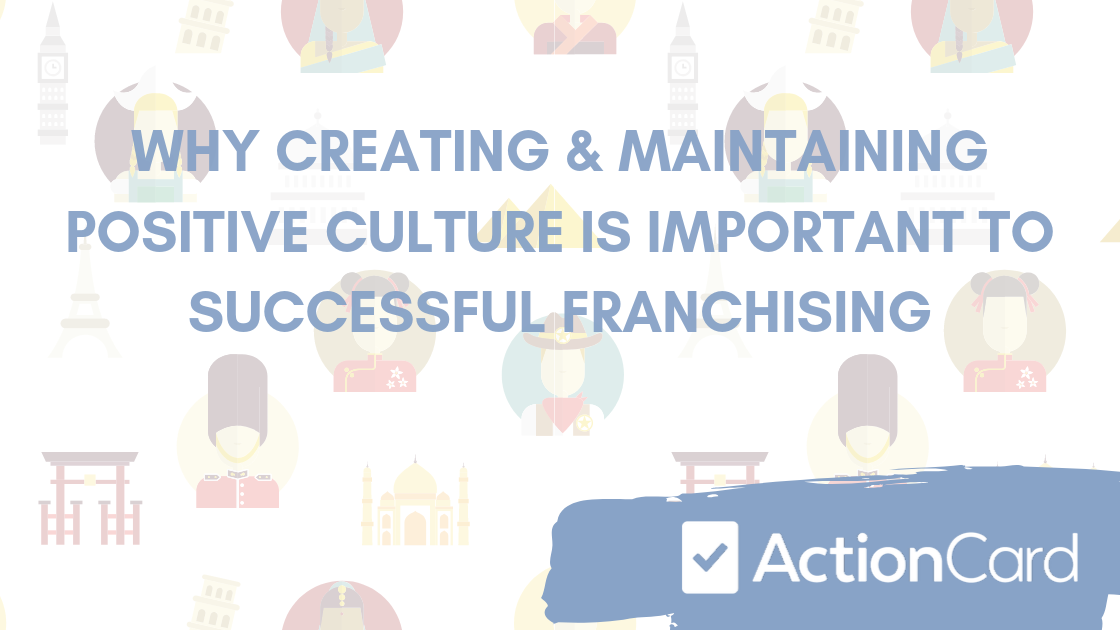Why Creating & Maintaining Positive Culture is Important to Successful Franchising

Company culture is the personality of a business. It exemplifies how your employees work and engage with customers. Aspects of company culture include the vision leadership has for the business all the way down to daily operations. These elements can lead to a positive or negative culture.
Positive company culture improves business productivity, profitability and employee retention. There’s a “team spirit” that focuses the energy of owners, managers, and floor staff and creates an environment where all employees feel encouraged and self-motivated to do their best and work toward company goals. On the other hand, negative company culture can have disastrous effects on company performance. Employee turnover often spikes and productivity is slashed.
For franchisors, creating and maintaining a positive culture is necessary to create a strong brand. When employees feel respected and empowered, they bring brands to life and create powerful customer experiences because they want to.
How Positive Culture Impacts Franchise Systems
- Increased employee engagement
- Improved performance
- Compliance with company mission and guidelines more likely
- Employee behaviors and operations become more consistent
Creating a positive culture begins with business leaders that embody the vision, values and culture they wish to see in their companies. Without leaders providing direction, company culture becomes stagnant or falls to the wayside. Culture is a bit like herding sheep. Unless the sheep know where to go, pushed by a sheep-dog, the herd just changes shape but doesn’t move forward. The most effective way for employees to discover the company culture is to see it in action.
Leaders should be inspired and inspirational; they need to lead by example, continually connect with the team and employees of all levels, and share their knowledge.
Positive company culture for franchises is also built from the ground up with hiring practices. It’s an opportunity to find new hires that already fit the bill or at least tick off some current culture marks. When new hires can see company culture at the start, they’re more likely to adopt those elements into their own workflow and personality quicker.
Frankly, leaders have their strengths and weaknesses. The same as all employees at every level. So it’s important that when hiring, leaders look to their own weaknesses and hire someone whose strengths are in team building and culture creation.
Failing to create and maintain positive company culture is one of the largest mistakes business leaders can make. Culture is what connects company to customer and shows customers who they’ve chosen to provide their goods and services over how they’ll get them.
